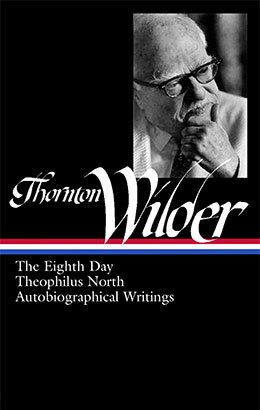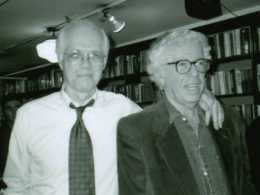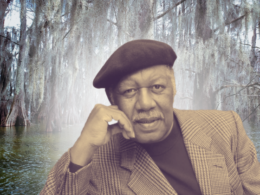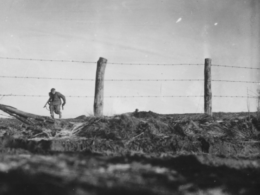Poet and critic J. D. McClatchy recently spoke with us about Thornton Wilder: The Eighth Day, Theophilus North, Autobiographical Writings, the third and final volume of Library of America’s Wilder edition, all of which McClatchy edited.
Library of America: Except for Our Town and maybe The Bridge of San Luis Rey, Thornton Wilder’s work is not well known today. Why should readers care about his work? Why the Library of America edition, and why now?
J. D. McClatchy: Wilder has too often been thought of as less a serious writer than a popular one. Our Town and The Bridge of San Luis Rey were instantly successful, and remain widely read—two faults held against them by the professoriate, who have all along condescended to Wilder as a sentimental, old-fashioned back number. (They should check with Edward Albee, for example, who considers Our Town not only the greatest American play but also the darkest and eeriest.) It may be that in the Modernist triumph, Wilder was not thought of as a radical experimentalist—a crucial label for critical darlings like Joyce and Eliot. (Hemingway and Fitzgerald could hardly be considered experimental either, but they exuded a certain glamour that the more philosophically inclined Wilder never depended on.)
Neither the Modernist canon nor most college syllabi include Wilder, and his reputation—despite the acclaim in his lifetime—moves now under the radar. Or perhaps it would be fairer to say that, all along, he has been hiding in plain sight. It’s my hope that these comprehensive Library of America editions will help to reveal a writer whose narrative skill and layered perspectives are both challenging and enthralling. He was such a lively stylist—in a novel like The Ides of March, say—that earlier readers may have overlooked his mesmerizing revisionist method of story-telling, constantly upending our sense of the motives and emotions of characters.
Wilder remains a writer whom readers approach, I think, on their own. He is discovered more than he is taught. In that he resembles the great experiences of life—sex and love and ambition and heartbreak. Readers encounter the novels of Wilder more often by chance than by assignment, and the result is a more private, personal experience, as if they alone understand. We don’t experience Hemingway, Fitzgerald, or Faulkner like that, since we encounter their work publicly, in class. They’re the ABCs of American fiction. When you discover Wilder it’s as if you’ve found a new letter. I wouldn’t put Wilder ahead of those others, but he’s part of the alphabet.
LOA: The Eighth Day is a particular favorite of yours. Why?
McClatchy: I suspect it was also Wilder’s favorite. He had been working with mixed success on two series of one-act plays, and seemed to have reached an impasse in his career. So he stopped, drove to the desert, and started to re-make himself as a writer. He wanted to return to the novel, and he was after something big, something as grand and expansive as one of the classic nineteenth-century novels he loved. (Even his descriptions of it as a work-in-progress hinted at his ambition. While writing the early chapters about the Ashley family boarding house, he joked to a friend that he was aiming for a cross between Louisa May Alcott and Fyodor Dostoyevsky.) He took his time writing it (it appeared a month before he turned seventy), realizing it would be unlike anything he had attempted before. He took the slimmest thread—a murder mystery—and wove it into a tapestry that spans continents and generations. It is his epic, a summing up of himself, his family, our national experience (as he saw it—a humane version of American exceptionalism), all of it posed in large and often global terms, suggested in part by the then novel ideas of Teilhard de Chardin. Coaltown is another Our Town, nowhere and everywhere.
By the way, The Eighth Day was also a favorite of John Updike’s. He once wrote of it: “Untidily, self-delightingly, it brims with wonder and wisdom, and aspires to prophecy. We marvel at a novel of such spiritual ambition and benign flamboyance.”
LOA: Wilder’s work seems so various. Are there connections between the subjects and themes and literary approaches of these later books and earlier works like The Bridge of San Luis Rey and Heaven’s My Destination? With the plays?
McClatchy: I think there are two strong impulses that animate Wilder’s work. In a 1930 letter to a friend who asked about his first three novels, Wilder wrote: “It seems to me that my books are about: What is the worst thing that the world can do to you, and what are the last resources one has to oppose to it?” So, the isolated human in extremis. And there is a contrary impulse as well: the picaresque. From Heaven’s My Destination to Theophilus North, Wilder loved an adventuring hero—let’s call him a minor American version of Don Quixote. To a Freudian, both these impulses might be rooted in Wilder’s difficult childhood, spent constantly on the move and often apart from his family. What both themes have in common is something they share with the author: a profound sense of loneliness.
There are other recurring motifs. Strong female characters, for one, from Madre Maria del Pilar in The Bridge to Dolly Levi in The Matchmaker to Eustacia Sims in The Eighth Day.
LOA: This third volume presents for the first time a number of previously unpublished autobiographical writings from late in Wilder’s career.
McClatchy: Yes, he had trouble writing directly about himself, and late in life discovered that he could take incidents and occasions from his past and “fictionalize” them. The fact that he was a twin whose brother died at birth was the most riveting of these occasions and led him to write Theophilus North, which he published at age seventy-six. But he kept on writing up other facts of his life, using the basics while changing the specifics. Three of these later pieces are included in this new volume. China, Yale, and Salzburg—it’s a marvelous miscellany that nods to an exciting life and to the writer’s ability to transform it.
LOA: From mid-career onward, Wilder was something of a nomad, traveling to far-flung places in order to write: he stopped in the desert town of Douglas, Arizona, where he knew no one, and spent more than a year there working on The Eighth Day. Why was he so peripatetic?
McClatchy: Wilder needed stimulants. Some writers don’t. Flaubert, say, or Henry James seemed deliberately to avoid them. But other writers—Hemingway is an obvious if overblown instance—crave them and depend on them. They seek out new experience in order to transform and shape it into material. They put themselves in the way of things, the better to watch and overhear, to “finger the goods,” as it were. This partially accounts for Wilder’s restlessness, his large acquaintanceship. Conversation and alcohol, I suppose, in quantities that tended to exhaust those around him, you could count too as necessary stimulants. Then again, there is no writer who does not need to withdraw. Emily Dickinson had her bedroom, Wilder had his stateroom. He most loved to write on ocean crossings. There was the kind of freedom he preferred: an absolutely limited freedom: the freedom to roam at will while confined to the middle of nowhere; the freedom to keep a thin wall between his work and the idle, partying crowd that be both craved and avoided.
But let me add a word about your use of “peripatetic.” As a young child he shuttled—Wisconsin, China, California. It must have come to seem normal.




